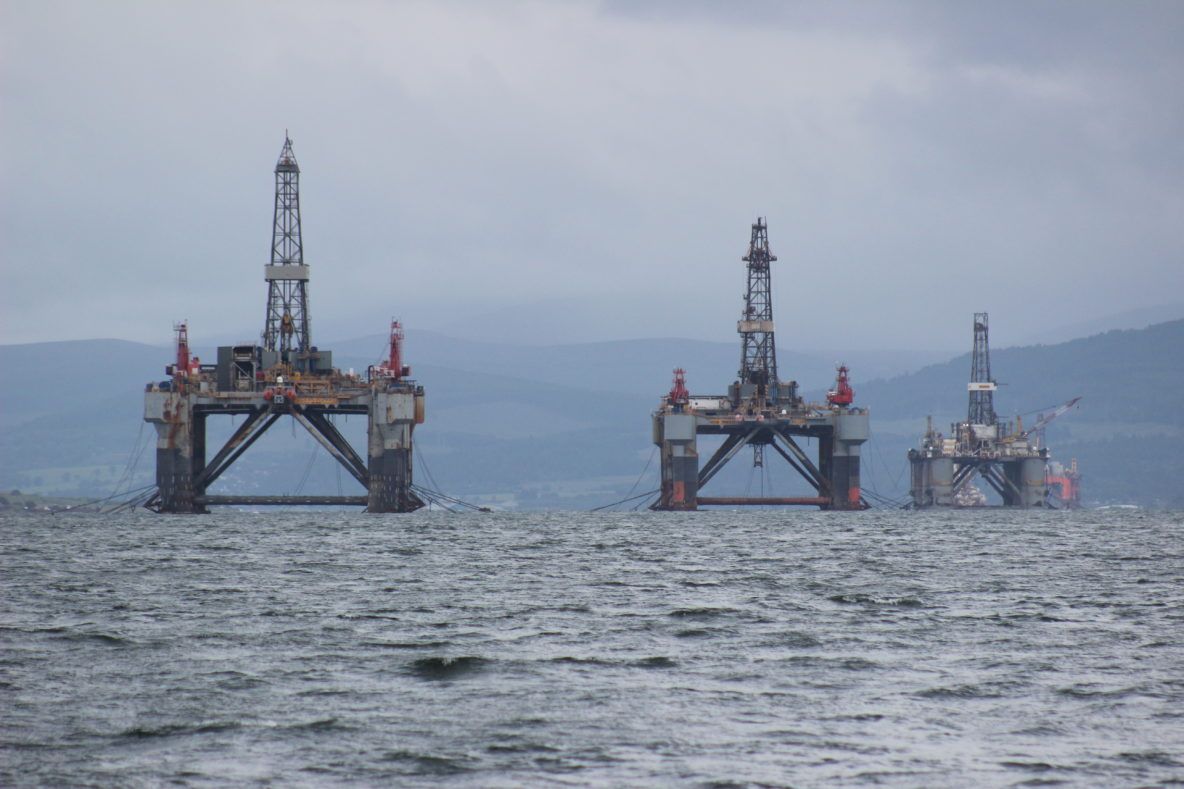
New Oil and Gas Licensing Round Goes Beyond Climate Breakdown
Commenting on the launch of a new offshore oil and gas licensing round today by the UK’s Oil and Gas Authority:
Mary Church, Head of Campaigns at Friends of the Earth Scotland, said:
“Licenses granted in this new oil and gas round will take us well beyond the point of climate breakdown. More interested in servicing corporate interests than protecting life on earth, the UK Government is planning to extract far more than its fair share of oil and gas, and the Scottish Government is fully behind this, despite its rhetoric of climate leadership. Real climate leadership means making tough decisions now to put us on a path to a climate safe future. Tackling the climate emergency means we must ban oil and gas exploration, and redirect the vast subsidies propping up fossil fuel extraction towards creating decent green jobs in a zero carbon economy. A Just Transition for workers and communities currently dependent on high carbon industries is an essential part of that.”
Anna Markova, Campaigner at Platform, said:
“Climate science says we have to stop drilling for oil. Each new oil and gas licence takes us closer to a ‘no-deal exit’ from oil extraction, crashing out without protecting jobs, ports, construction yards. The ports of Tynemouth, Norfolk, and Hull need new industry – but one that has a long lasting future in a livable climate. Hull already builds offshore wind turbines for some of the biggest windfarms in the world. If we begin a planned transition now, renewable industries can create hundreds of thousands of decent clean jobs where they’re needed, and fill the economic gap left by the oil industry. But to make this happen, UK and Scottish governments must work with trade unions, safeguard an equivalent job guarantee for oil workers, and drive the transition with all the available tools, from national investment banks to public energy companies to education and skills agencies.”
Oil Change International, Platform and Friends of the Earth Scotland recently published a major report that shows that the UK’s oil and gas drilling plans, and Scottish Government’s support for them, are incompatible with responding to the climate emergency.
‘Sea Change’ reveals the climate impact of North Sea oil and gas extraction, and urges the governments to prioritise a job-creating energy transition.
The report’s key findings:
- The UK’s 5.7 billion barrels of oil and gas in already operating oil and gas fields will exceed the UK’s share in relation to the Paris climate goals – whereas industry and government aim to extract 20 billion barrels.
- The additional oil and gas extraction enabled by recent subsidies will add twice as much carbon to the atmosphere as the phase-out of coal power saves.
- Given the right policies, clean industries could create more than three jobs for every North Sea oil job at risk, which can enable an “equivalent job guarantee” for every oil worker.
Greg Muttitt, Research Director at Oil Change International, said:
“Our report exposes the elephant in the room of UK and Scottish climate policy: the government is pushing increased oil drilling while seeking to decrease carbon emissions, and it just doesn’t add up. We are facing a climate emergency, and government needs to get serious about a transition to clean energy, rather than maximising North Sea extraction and putting billions of pounds of subsidies in the pockets of oil companies. When you’re in a hole, you need to stop digging.”
Despite the climate emergency, UK oil and gas extraction is growing again, following new subsidies in the 2015 and 2016 Budgets.
The authors call for termination of this and all future offshore licensing rounds. Instead, they say the UK and Scottish Governments should work with affected communities and trade unions on a Just Transition plan to create new decent jobs in clean industries, alongside a managed phase-out of oil and gas extraction.
The report warns that failing to begin a transition now will mean later action would have to be so rapid as to cause a collapse of the industry, putting tens of thousands of jobs and regional economies at risk.
NOTES TO EDITORS:
1. UK Oil and Gas Authority launches 32nd licensing round: https://www.ogauthority.co.uk/news-publications/news/2019/oga-launches-32nd-offshore-licensing-round-with-groundbreaking-supporting-datasets/
2. The full report ‘Sea Change: Climate Emergency, Jobs and Managing the Phase-Out of UK Oil and Gas Extraction’ is available at: https://foe.scot/resource/sea-change-climate-report/
3. Scotland and Wales: World’s first governments to declare a climate emergency https://climateemergencydeclaration.org/scotland-worlds-first-government-to-declare-a-climate-emergency/
UK Parliament declares climate change emergency https://www.bbc.co.uk/news/uk-politics-48126677
4.Enough UK oil reserves ‘for at least 20 years of production’ (Nov 2018) https://www.bbc.com/news/uk-scotland-north-east-orkney-shetland-46137555
5. Platform is a London-based organisation that conducts research, education, and campaigns towards a just future beyond fossil fuels.
Oil Change International is a research, communications and advocacy organization focused on exposing the true costs of fossil fuels and facilitating the coming transition towards clean energy.
Friends of the Earth Scotland is
* Scotland’s leading environmental campaigning organisation
* An independent Scottish charity with a network of thousands of supporters and active local groups across Scotland
* Part of the largest grassroots environmental network in the world, uniting over 2 million supporters, 75 national member groups, and some 5,000 local activist groups.
